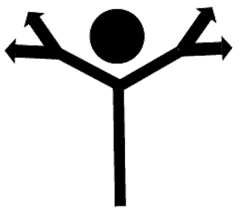AKA
Progressive Education
Reform Education
Synopsis
Authentic Education applies to those approaches to schooling rooted in the human sciences that emphasize personal engagement, learner difference, developmental stages, and personalized learning aligned with individual curiosities and goals. Classroom approaches are based in reality, focused on understanding, and rich with inquiry. Prominent associated discourses and constructs include:- Experientialism (defined by William Schubert, 1980s) – an orientation to curriculum design that focuses on individual interests and needs, emphasizing direct experience, learner agency, and real-world contexts
- Flexible Learning (Mare Gosper, David Rich, 1990s) – any model of formal education organized around a commitment to enable learners to personalize their experiences through choice of pace, mode, and location of learning. Associated discourses include:
- Flexible Classroom – a space intended for formal learning that affords students some liberty in matters of arrangement, location, tools, and so on
- Humanistic Education (Person-Centered Education) (Carl Rogers, 1960s) – an umbrella category that includes any approach to formal education that is designed to engage the whole learner, attending to bio-physical, intellectual, emotional, and social aspects of one’s being while supporting growth and the development of practical, artistic, and critical competencies. (See Alternative Education for some prominent example of Humanistic Education, including Montessori Method, Waldorf Education, and Reggio Emilia Approach.)
- Progressivism – a counterpoint to emphases and structures of 19th-century public schooling, Progressivism frames schooling as a participation in life rather than preparation for life.
- Speculative Pedagogies (Anetero Garcia, Nicole Mirra, 2020s) – an umbrella term for strategies for engaging learners that that embrace one or more elements of discourses included among Discourses on Individual Learning in Group Settings, Learning Design, and Activist Discourses (Note: Speculative Pedagogies should not be confused with Speculative Pedagogy, under Systemic Sustainability Education.)
Context
While some of its sensibilities trace back to ancient times, Authentic Education only emerged as a strong movement in the early 1900s. Major triggers included a shift in focus across the physical sciences (toward studies of transformation), rigorous research into human learning, and the emergence of a middle class that demanded more of schooling.Paradigm
 Paradigmatically – that is. in terms of a fitting model or symbol – we offer that this icon as a visual metaphor for Authentic Education. It combines three images that came to be prominently associated with progressivist and reform educational movements in through the 20th century – namely triumphant individualism, organic development, and multiple directionality. This icon is thus intended to highlight emergent attentiveness to learner’s agency, the active body, and multiple paths of learning.
Paradigmatically – that is. in terms of a fitting model or symbol – we offer that this icon as a visual metaphor for Authentic Education. It combines three images that came to be prominently associated with progressivist and reform educational movements in through the 20th century – namely triumphant individualism, organic development, and multiple directionality. This icon is thus intended to highlight emergent attentiveness to learner’s agency, the active body, and multiple paths of learning.
.
.
..
Prominent Metaphors of Learning
- Construing
- Adapting
- Developing (across levels of ability, sophistication, or consciousness)
- Sensemaking Metaphor
- Meaning-Making Metaphor
- Learning Cycle Metaphor
Prominent Metaphors of Knowledge
Drawing inspiration and metaphors from biology and Structuralism, which made clear that fully objective knowledge is impossible, as human perception always figures into what is known and how it is known. That realization prompted a shift in attention to subjectivity, and personal knowing came to be framed as evolving networks of ideas.Prominent Metaphors of Teaching
With a shift from teacher-centered classrooms to learner-centered settings associated with Authentic Education, teaching was recast in terms of guiding and facilitating. It involves attentiveness to each learner’s unique history and is oriented toward the development of each individual’s potentials.Subdiscourses:
- Experientialism
- Flexible Classroom
- Flexible Learning
- Humanistic Education (Person-Centered Education)
- Speculative Pedagogies
Please cite this article as:
Davis, B., & Francis, K. (2023). “Authentic Education” in Discourses on Learning in Education. https://learningdiscourses.com.
⇦ Back to Map
⇦ Back to List
